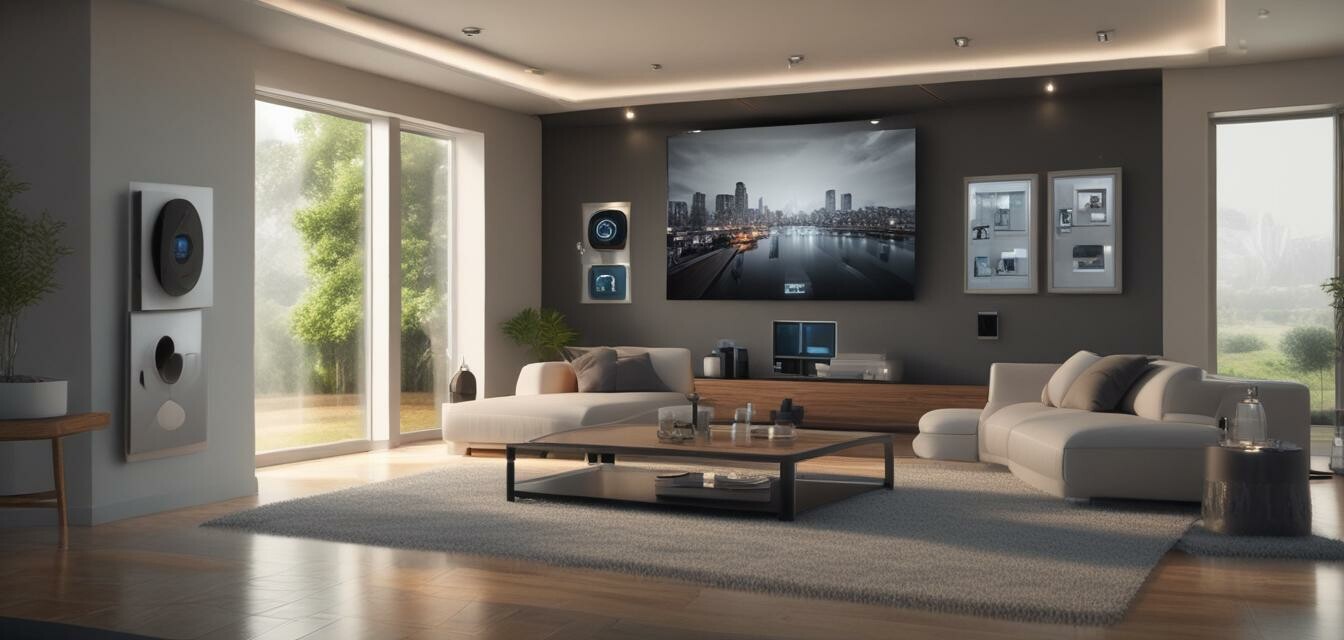
Smart Home Security
Trends in Home Automation and Security for 2024
Key Takeaways
- Increased integration of AI for smarter security solutions.
- Emergence of DIY home security systems with user-friendly interfaces.
- Rise in demand for eco-friendly and energy-efficient devices.
- Growing importance of data privacy and cybersecurity in smart homes.
- Trend toward unified home automation platforms for seamless control.
The landscape of home automation and security is rapidly evolving. In 2024, homeowners can expect significant advancements that not only enhance security but also increase convenience in day-to-day life. From AI-enhanced systems to eco-friendly options, let's explore the most notable trends affecting the industry this year.
1. AI-Powered Security Systems
Artificial Intelligence is no longer a futuristic concept; it's becoming a staple in home security systems. Here’s how AI is shaping security:
- Smart Surveillance: Cameras equipped with AI can differentiate between familiar faces and strangers, reducing false alarms.
- Predictive Analytics: AI can analyze data from various sensors to predict potential security breaches, keeping your home safer.
- Automated Responses: Advanced systems can take action by notifying authorities or homeowners immediately upon detecting a threat.
2. DIY Home Security Solutions
The trend of DIY home security systems is here to stay. These systems are designed to be easily installed and managed by homeowners. Benefits include:
- Cost-Effective: Reduce installation costs by setting up your own systems.
- Customizable Options: Tailor security solutions according to your home's unique needs.
- User-Friendly Interfaces: Modern systems come with intuitive apps that allow easy control and monitoring.
Learn more in our Buying Guides.
3. Eco-Friendly Security Devices
With growing concerns about energy consumption and environmental impact, eco-friendly security devices are gaining popularity. Features include:
- Solar-Powered Cameras: By harnessing the sun's energy, these cameras reduce electricity usage.
- Energy-Efficient Sensors: Devices that consume less power while remaining effective.
- Sustainable Materials: Increased focus on using recyclable materials in product manufacturing.
4. Focus on Cybersecurity
As smart homes become more connected, the potential risks increase. Here’s why cybersecurity is now a priority:
- Protecting User Privacy: As devices collect personal data, it’s essential to ensure that information is adequately secured.
- Security Protocols: Implementing stronger encryption methods to protect against unauthorized access.
- Regular Software Updates: Device manufacturers are focusing on providing continuous updates to fend off cyber threats.
Understanding Your Security Network
For more insights into securing your home, check out our article on Home Security Tips.
5. Unified Home Automation Platforms
The trend toward unified platforms allows homeowners to control all their devices from a single application. Benefits include:
- Simplified Control: Manage lighting, security, and temperature from one app.
- Seamless Integration: Devices from various manufacturers can work together without issues.
- Enhanced User Experience: More streamlined interactions create a better overall experience.
Conclusion
2024 is set to be a transformative year for home automation and security. The integration of AI, the rise of eco-friendly products, and an increased focus on cybersecurity signal that homeowners will be better equipped than ever. Embrace these trends to enhance the safety and convenience of your home.
Pros
- Enhanced safety features through AI technology.
- Increased flexibility and personalization with DIY options.
- Reduced environmental impact by using sustainable products.
- More robust cybersecurity protocols ensuring privacy.
- Streamlined control of all smart devices.
Cons
- Initial setup of DIY systems may require technical knowledge.
- Potential for increased costs with high-tech options.
- Ongoing maintenance needed for software and device updates.
- Possible vulnerabilities if cybersecurity practices aren’t followed.
Additional Resources
Stay informed about the latest advancements by visiting our News and Trends category, providing the latest updates in smart home security systems.
FAQs about Home Automation and Security
| Question | Answer |
|---|---|
| What is home automation? | Home automation refers to the control of home appliances through a centralized system, often via mobile apps or voice assistants. |
| How do smart security systems work? | Smart security systems utilize connected devices to monitor and protect your home, allowing remote access and real-time alerts to important events. |
| Are DIY home security systems effective? | Yes, many DIY systems are equipped with advanced technology to ensure effectiveness and can often be customized to meet individual needs. |